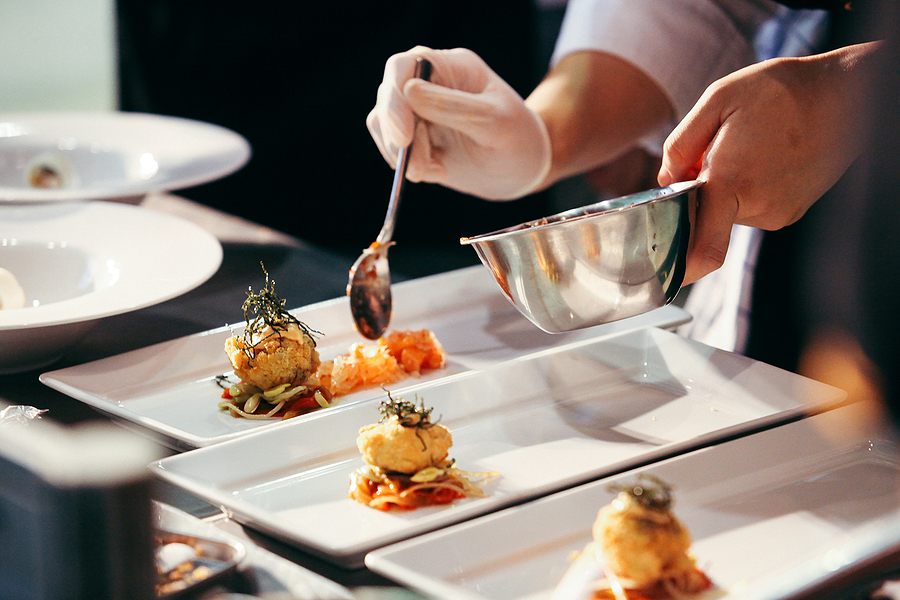The best way to start any successful career is to absorb advice from as many professionals in the industry as possible. Not only will this help you determine if your dream profession is truly for you, but this advice can also help guide you down the path to success.
As a professional chef, Karen Davison can offer a wealth of knowledge to aspiring chefs. She has worked in kitchens and restaurants all over America, including in her hometown of Plano, Texas. She specializes in fine dining and has worked as a saucier, a sous chef, an associate chef, and a head chef in various restaurants. Through these experiences, she has gained the knowledge and skills necessary to become a successful professional chef. As a believer in life-long learning, Ms. Davison shares her skills and knowledge with others online as a culinary blogger. Based on her experience, and her path to success, Karen offers helpful chef advice for those aspiring to become professionals.
Harness Your Passion
To be a professional chef, you’ll need to have an unwavering passion for cooking. Karen Davison notes that becoming a professional chef takes sweat, blood, and tears so you’ll need true passion to get where you want to go. Cooking as a professional requires skills and knowledge but also an artistic flair that can only come from true passion. The most amazing food is created by passionate people and the best way for you to stand out in the industry will be to harness your passion and pour it into what you create.
Develop Realistic Expectations
With a never-ending selection of new culinary shows on television, it’s hard not to get caught up in the appealing idea of becoming a professional chef. Unfortunately, this portrayed lifestyle does not accurately reflect reality. Being a professional chef isn’t just about cooking and it’s important that aspiring chefs understand what the profession entails. Yes, being a professional chef involves cooking, lots and lots of cooking, but there are other aspects of the job that are sometimes overlooked. You’ll need to manage your kitchen and staff, order supplies, manage costs, maintain an orderly and clean kitchen, and interact with guests.
Another important factor to consider is the amount of time that you’ll need to put into this career. Holidays, weekends, family events, nothing is off-limits and aspiring chefs should be willing to give up these activities. Be prepared to work long hours and under immense pressure. As a professional chef, Karen Davison knows firsthand what it truly takes to be successful in the culinary industry. Her chef advice — work experience is key and will help you develop realistic expectations. Working in the industry will allow you to experience the lifestyle and the difficult aspects of the job before you ever commit your life to it. In addition, working in a kitchen in a number of different roles will help you better understand each position so you can more effectively manage that position later down the road.
You’ll Need Thick Skin
If you don’t have thick skin then becoming a professional chef may not be for you. Criticism is plenty in the culinary industry and it’s important that you’re able to take this criticism and learn from it where you can. As a chef you’ll need to accept and learn from criticism from peers and superiors, but also from unhappy guests who may or may not be providing anything constructive.
Look Beyond the Money
Wanting to become a professional chef in hopes of making millions is not a great way to start out. In fact, experienced chefs, like Karen Davison, recommend that, if your dream of becoming a chef is based on the paycheck alone then you’ll probably want to look to a different industry. It takes years to become a successful chef if you make it at all. Therefore, when considering a new position, don’t focus on the pay. Rather, focus on the potential experience you’ll gain from the job and evaluate the opportunity on this rather than how much the job pays. This will get you much farther than focusing on money alone as good experience is invaluable in the culinary industry.
Focus on the Basics
When you’re starting out, it can be difficult not to try and take on complicated and exciting new dishes. However, to be the best you’ll need to start small. Keep it simple. Karen Davison’s chef advice is to learn the basics and focus on those in your early years. Focus on basic ingredients, how to choose them, how to prepare them, and how to compliment them. Learn about seasonal ingredients and the history of cuisine. Learning these skills and developing this knowledge will help you become the best chef you can be.
Experience is Everything
Working in different kitchens in various roles will allow you to gain valuable experience and help you discover if being a chef is truly what you want to do. Most importantly, experience will support you in honing your craft and developing valued skills. The more experience the better when it comes to your resume. Karen Davison recommends never turning down an opportunity that you see as being valuable. There is something that you can take away from every position in the kitchen and the more you know the more successful you’ll be.
Practice, Practice, Practice
As with anything, practice makes perfect and that’s no exception for professional chefs. Studies have shown that it takes approximately 10,000 hours to truly master something so, put in the time. Practice. Learn. Grow. Cook for your family. Cook for colleagues. Cook and practice your skills whenever and wherever you can to ensure you are improving.
Keep Learning
Committing to life-long learning in the culinary industry is a must. As a chef, you’ll never run out of things to learn. Learn from those around you, read, practice, experiment, and never stop. To stay on top of your game you’ll constantly need to try new things and to tweak what you’re currently doing.
Karen Davison on Being Willing to Fail
You’ve probably heard it before but it’s especially true in the culinary industry — success doesn’t come without failure. Becoming a professional chef will take a lot of hard work and not everything you do will be successful. There will be some tough moments, that’s a given, but what’s important is that you are willing to make mistakes and to learn from them to improve yourself. Some chef advice, at the end of the day, as long as you’re learning from your failures, you’ll be growing and getting closer to reaching your goals, says Karen Davison.
Image Source: BigStockPhoto.com (Licensed)
Related Categories: Cooking, Reviews, Work







